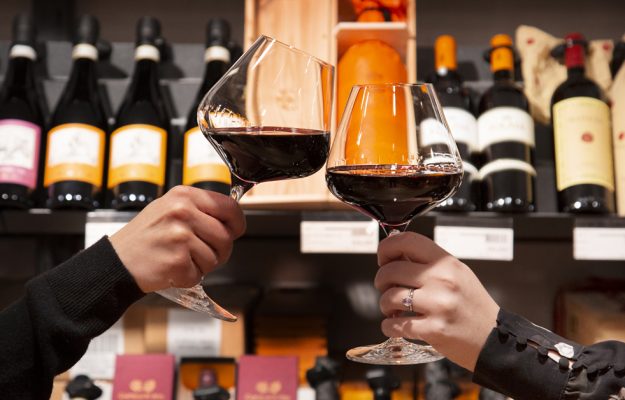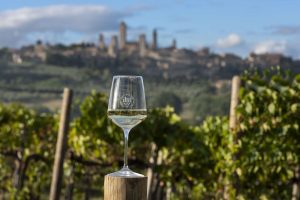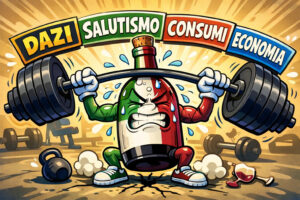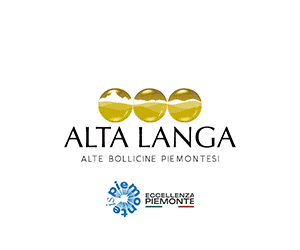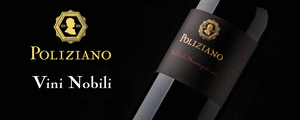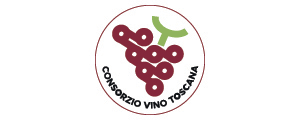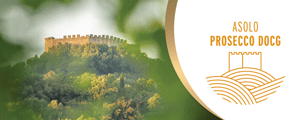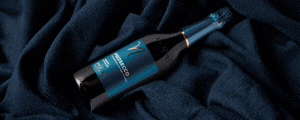The distinction between alcohol abuse and conscious consumption is back, the concept of “no safe level” in the consumption of wine and spirits has disappeared, and there are no “health warnings” on labels, where messages on responsible consumption could be included instead. The amendments to the Beca report on the EU Cancer Plan, tabled by the Italians Paolo De Castro and Herbert Dorfmann, were a major success and passed by a strong majority in the Strasbourg plenary session (which will give the final green light to the report in its entirety later today). And so, Italian wine does not lower its guard but breathes a sigh of relief. “The moderate approach has been recognized as more appropriate. We hope that we can now continue to work together in the fight against cancer without demonizing the conscious consumption of wine and other alcoholic beverages”. All the organisations in the Italian wine sector - Alleanza delle Cooperative Italiane, Assoenologi, Confagricoltura, Cia/Agricoltori Italiani, Copagri, Federvini, Federdoc, Unione Italiana Vini - commented jointly.
“The amendments made today by the European Parliament make the document on the Cancer Plan more balanced, a document that the wine world believes is fundamental to curb the disease of the century. We would like to thank the Italian members of parliament for their attention”, commented the secretary of the Unione Italiana Vini (UIV), Paolo Castelletti, “for their ability to listen and synthesize, as well as for their teamwork, irrespective of party affiliation, which they demonstrated with “surgical” amendments that do partial justice to common sense, to the world of wine and to its moderate consumers”. Sandro Sartor, Vice-President of the Unione Italiana Vini (UIV) and President of the European Association “Wine in Moderation”, said: “the European Parliament’s vote will be an incentive for a sector that increasingly wants to promote moderation in consumption. The De Castro-Dorfmann amendments have succeeded in averting as far as possible an attack on the world of wine that unfortunately does not end here. It will be necessary to remain vigilant in order to affirm the concept of moderation that is proper to wine, starting with the plans of the World Health Organisation (WHO) - to be voted on in May - which also provide for warnings on labels, and ending with the Nutriscore, which threatens to be proposed within the year”. The key amendments admitted to the text, notes UIV - Unione Italiana Vini, concern the introduction of the concept of “harmful consumption” in two important passages of the report, as well as, as mentioned, the elimination of health warnings that will be replaced with the concept of “moderate and responsible drinking information”. The amendment relating to the improvement of the concept of “no safe level” is more nuanced, now “the safest level of consumption is none”, while on the promotion front, the limitation/banning of sponsorship of sporting events for alcoholic beverages is adopted only for those sporting events whose audience consists mainly of minors. Important “indications” remain in the text, which according to UIV, however, represent a serious danger for the commercial growth of the sector in terms of exports, such as the increase in taxation and the revision of the promotion policy. In any case, it is an important step, especially for Italy, a country in which, as the Unione Italiana Vini (UIV) points out, wine is both a culture and an economy, but above all it is one of the symbols of the Mediterranean diet and of Italian style recognized throughout the world. “The paradox created by the new food dogmas clashes with the data of the World Health Organisation on life expectancy: in Europe, according to the WHO, Switzerland, Spain, Italy and France - among the main consumers of wine - are in the top five in Europe for longevity, with Italy that in the last 50 years has decreased its wine consumption by 70%, taking the path of quality and moderation a long time ago”.
Federvini thought along the same lines: “reasonableness and common sense have won. We are pleased that the European Parliament has accepted the requests we wanted to reiterate, introducing improvements aimed at constructing a more balanced text that makes the due distinction between the consumption and abuse of alcoholic beverages”, said president Micaela Pallini, thanking in turn the Italian MEPs, who voted overwhelmingly in favor of the amendments, for the result. “Now we must not lower our guard”, continued Pallini, “and for this reason, we reiterate with the utmost urgency the need to quickly set up a permanent round table to discuss the international situation, involving the Ministries of Agriculture, Foreign Affairs and Health, ready to carefully follow the legislative proposals that will arrive from the European Commission in the coming months”. “It is not just a matter of protecting a sector that is the pillar of Italian agri-food products”, says Vittorio Cino, Federvini’s managing director, “but also of countering a cultural drift that risks damaging not individual products but a cultural model and a lifestyle made up of sociability, conviviality, tradition and history, and based on the Mediterranean diet model that the world envies us and that science always recalls as the ideal path to follow for a healthy diet. We focus on education and responsibility. We hit every form of abuse hard, but we avoid penalization and discrimination, which instead affects everyone indiscriminately”. The forecast of discriminatory measures, in fact, emerges from the agenda of the coming months. Following, in fact, the work program indicated by the European Commission in its Communication on the European plan to combat cancer presented last year, the Community executive intends to present a review of the legislation on alcohol taxation, with the risk of seeing the extension to the whole Union of what has already been introduced in countries such as Ireland and before that in Scotland, on the subject of minimum prices which, since January, has caused prices of alcoholic beverages, including wines, to skyrocket. Furthermore, Federvini recalls that the horizontal promotion policy is currently being revised, with the risk of seeing quality wines, spirits and liqueurs excluded, if only de facto, from European funds supporting the international competitiveness of our sectors.
“The vote on the Beca Report has prevented the future of the wine world and its development on international markets from being compromised. It was essential to distinguish between alcohol use and abuse, as we recognize the principle that it is not the individual products that are dangerous, but the quantity consumed”, adds Federico Castellucci, President of the Federazione Nazionale Vino Confagricoltura. “With the amendments passed, we have avoided giving consumers incorrect information that would have condemned wine as an alcoholic beverage harmful to health”. “This vote benefits the entire Italian agri-food sector and the Mediterranean diet, whose validity for a healthy lifestyle and proper nutrition has been further recognized”, added Confagricoltura president Massimiliano Giansanti. “We thank the Italian parliamentarians who have taken on board the concerns of the supply chain and worked to avoid criminalizing the products of our agriculture. It is also a victory against Nutriscore”, concludes Giansanti, “a nutritional labeling model that needs to be totally rethought and which was defeated by the vote on the Beca Report”.
Riccardo Cotarella, President of Assoenologi, reiterates: “the European Parliament has saved the thousand-year history of Italian wine. The amendment to the report on the Cancer Action Plan is substantial and establishes a clear point on the relationship between wine and health. It has finally been included that there is a difference between harmful and moderate consumption of alcoholic beverages and that it is not consumption itself that constitutes a risk factor for cancer. We also welcome the decision to remove the reference to health warnings on labels from the text. We welcome, however, the call to improve labels to include information on moderate and responsible alcohol use, something we have always done. The changes made to the Beca Commission’s plan are the result of an important synergy between all the players in the wine world, who in recent months have never succumbed to the idea of having to accept the hypothesis of linking a good glass to the risk of cancer. I would also like to applaud and thank the Italian MEPs who have taken up our battle”.
The small producers of the Federazione Italiana Vignaioli Indipendenti (Fivi) are also rejoicing: “Vignaioli Indipendenti”, says president Matilde Poggi, “have always been in the front line in promoting careful and healthy wine consumption, communicating moderation and combating abuse. We believe that education is always the best way to encourage people to observe appropriate behavior, not repression. Wine is part of people’s traditions and culture and is part of a chain that keeps the rural world alive and contributes to its development: protecting it is fundamental. This is why we would like to thank the Italian MEPs, who, by remaining solidly united, have succeeded in advancing the demands of the national sector: it is mainly thanks to them that this result has been achieved in Strasbourg”.
The path marked out by the vote is also positive according to Cia/Agricoltori Italiani: “we support and share the Commission’s efforts in the fight against cancer - explains the President of Cia/Agricoltori Italiani, Dino Scanavino - which represent an important step forward for the future health of European citizens. But these efforts must take into account the agri-food excellences, such as wine but also meat, which have always been part of the European lifestyle and characterizes the Mediterranean Diet”. Even more so with the pandemic, for Cia it is important to focus again on people’s health, which passes through disease screening, but also through education and the promotion of correct lifestyles and a healthy and diversified diet. “Future European policies, from the new labeling rules to the review of the promotion policy, must be defined according to these principles”, adds Scanavino, “and the lighthouse must always be our Mediterranean Diet, a Unesco heritage for more than 10 years, based on the variety and biodiversity of food and the seasonality of products, as well as on a unique link with the territory and its culture”.
“The European Parliament saves almost 10,000 years of wine history, the first traces of which in the world were found in the Caucasus, while in Italy there are traces in Sicily as early as 4100 B.C.”, added President Ettore Prandini, who thanked “the Italian parliamentarians for their teamwork in defending a sector that is worth 12 billion in turnover, of which 7.1 billion in exports, and directly or indirectly provides employment for 1.3 million people”.
“The vote in plenary on the Action Plan to Combat Cancer gives us back an overall balanced text that is certainly an improvement, especially as regards wine, since the approach that did not distinguish between the moderate and conscious use of wine and the abuse of alcoholic substances, which would have heavily penalized the wine sector by considering the consumption of alcohol itself as a risk factor, has been eliminated. Overall, however, the document - which contains important guidelines for the health of European citizens in terms of cancer prevention and access to treatment - contains some references that will inevitably have repercussions on policies to promote agri-food products”, commented Giorgio Mercuri, president of the Alliance of Agri-Food Cooperatives. He added: “although there are still reasons to be satisfied with the work carried out by the MEPs, especially the Italian ones”, explained President Mercuri, “it is essential to remain vigilant and keep a high level of vigilance in general on the strategies that Europe is ready to put into practice. In recent years, the Commission has developed a complex of policies and strategic documents - from the Farm to Fork to the Biodiversity Strategy to the review of labeling systems and Nutriscore, just to mention the main ones - that will have a significant impact on our agri-food supply chains, from wine to red meat. The Commission’s strategic documents and guidelines risk being translated very soon into legislation, with an approach that has so far appeared anything but balanced between the various requests. We can only hope that the Council will play its part and correct the situation. With regard to promotion policies, the final report approved today by the European Parliament welcomes a future review of promotion policies that would encourage a healthy diet, with increased consumption of vegetable proteins, fruit and vegetables, and prevent overconsumption of red and processed meat”. “While we are concerned and vigilant with regard to the possible developments of the promotion reform”, concluded Mercuri, “at the same time it is important that the EU Parliament has stressed the reference to the excessive consumption of meat and not to mere consumption, thus reiterating the concept of the importance of a balanced and varied diet. We are also encouraged by the words of EU Health Commissioner Stella Kyriakides, who declared that “there is no intention to target a gastronomic culture” and that “the work will be based on scientific data””.
Speaking at institutional level, however, is the Undersecretary for Agriculture (with responsibility for wine), Gian Marco Centinaio: “common sense has prevailed. There is a profound difference between abuse and moderate, responsible consumption. We immediately opposed the message of the no safe level, the absence of a safe level of alcohol consumption. Wine in particular - adds Centinaio - is culture, sociality, it narrates and makes our territories unique, it is part of our history and of the Mediterranean Diet. Fighting cancer is undoubtedly a priority for everyone, but health is not protected by demonizing a sector or a single product that is linked to the culture and lifestyle of Italy as well as other European countries. We are talking about a sector that not only contributes to keeping alive rural communities supported by the EU itself, but also represents the first item of European agri-food exports. In Italy, this sector is worth 12 billion in turnover, 7.1 billion of which are exports, which translates into over a million jobs. Made in Italy bottles, in particular, stand out for their quality, 70% of which are Docg, Doc and Igt. Any excess can be harmful, a correct lifestyle and a varied and balanced diet should be encouraged. But a glass of wine with friends at the table has positive effects on health, both for the body and the soul”. The Minister of Agriculture Stefano Patuanelli, on the other hand, entrusted his political comment to Facebook: “in the European Parliament, during the vote on the report on the Cancer Action Plan, the amendments co-signed and supported by the 5 Star Movement Europe were approved, introducing the difference between harmful and moderate consumption of wine. We have opposed the exploitation and, once again, the attempt to label our excellence in a misleading way, with improbable black labels. We will never tire of repeating that food culture cannot be homologation and conditioning”.
Copyright © 2000/2026
Contatti: info@winenews.it
Seguici anche su Twitter: @WineNewsIt
Seguici anche su Facebook: @winenewsit
Questo articolo è tratto dall'archivio di WineNews - Tutti i diritti riservati - Copyright © 2000/2026










